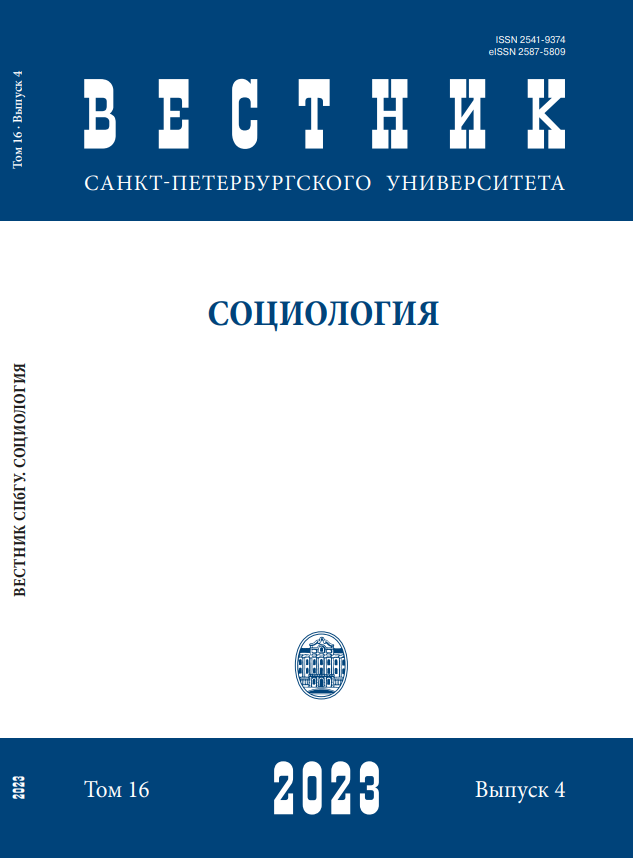Students’ view on a scientific mentor
DOI:
https://doi.org/10.21638/spbu12.2023.403Abstract
The strategies of the universities involve strengthening the role of student science and developing programs to support it, including scientific mentoring. The implementation of the
institute of scientific mentoring in Russian universities should be preceded by the study of
students’ expectations regarding the qualities of a scientific mentor. The success of the interaction between a student and a scientific mentor (SM) is determined by the correspondence of
the expectations of students and mentors from each other. In addition, a promising “partner”
model of scientific interaction is based on taking into account or adjusting students’ expectations from the SM. The purpose of the study was to identify the ideas of students of Russian
universities about the qualities of scientific mentors. The purpose is to identify students’ view
on the ideal and real qualities of SM. The objectives were detection the significant socio-demographic, personal and professional characteristics of SM; establishment differences in the
perceptions of SM among students with different educational and research experience, as well as students enrolled in programs of different profiles; fixing contradictions between the real
and expected image of SM. The article is based on the results of the survey of students of Russian universities (N=3032 people). The results show the high importance for students of the
personal and professional qualities of SM in comparison with their socio-demographic characteristics. Among the personal and professional characteristics of the mentor, pedagogical,
cultural competencies come to the fore. Students who are successful in studies and research,
as well as undergraduates and students studying in social and humanitarian programs, have
high requirements for SM. There is a great need for scientific mentoring among students of a
natural-technical profile. It is concluded that the majority of Russian students are guided by
SM qualities corresponding to the authoritative style of mentoring. The features of the SM indicate the correspondence of the real and desired qualities of SM. The contradictions between
the real and expected image of SM can be taken into consideration in scientific mentoring
programs.
Keywords:
scientific mentoring, scientific mentor and mentee, research activity of students, students’ expectations, mentoring interaction, models of scientific mentoring
Downloads
References
Downloads
Published
How to Cite
Issue
Section
License
Articles of "Vestnik of Saint Petersburg University. Sociology" are open access distributed under the terms of the License Agreement with Saint Petersburg State University, which permits to the authors unrestricted distribution and self-archiving free of charge.




